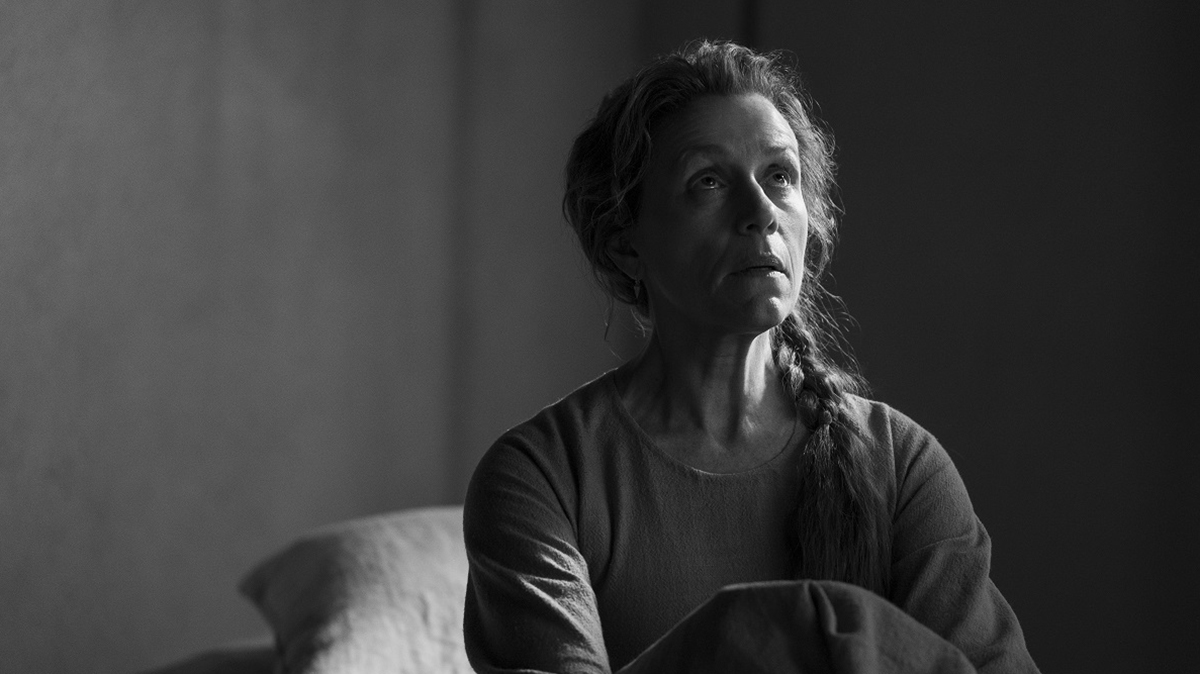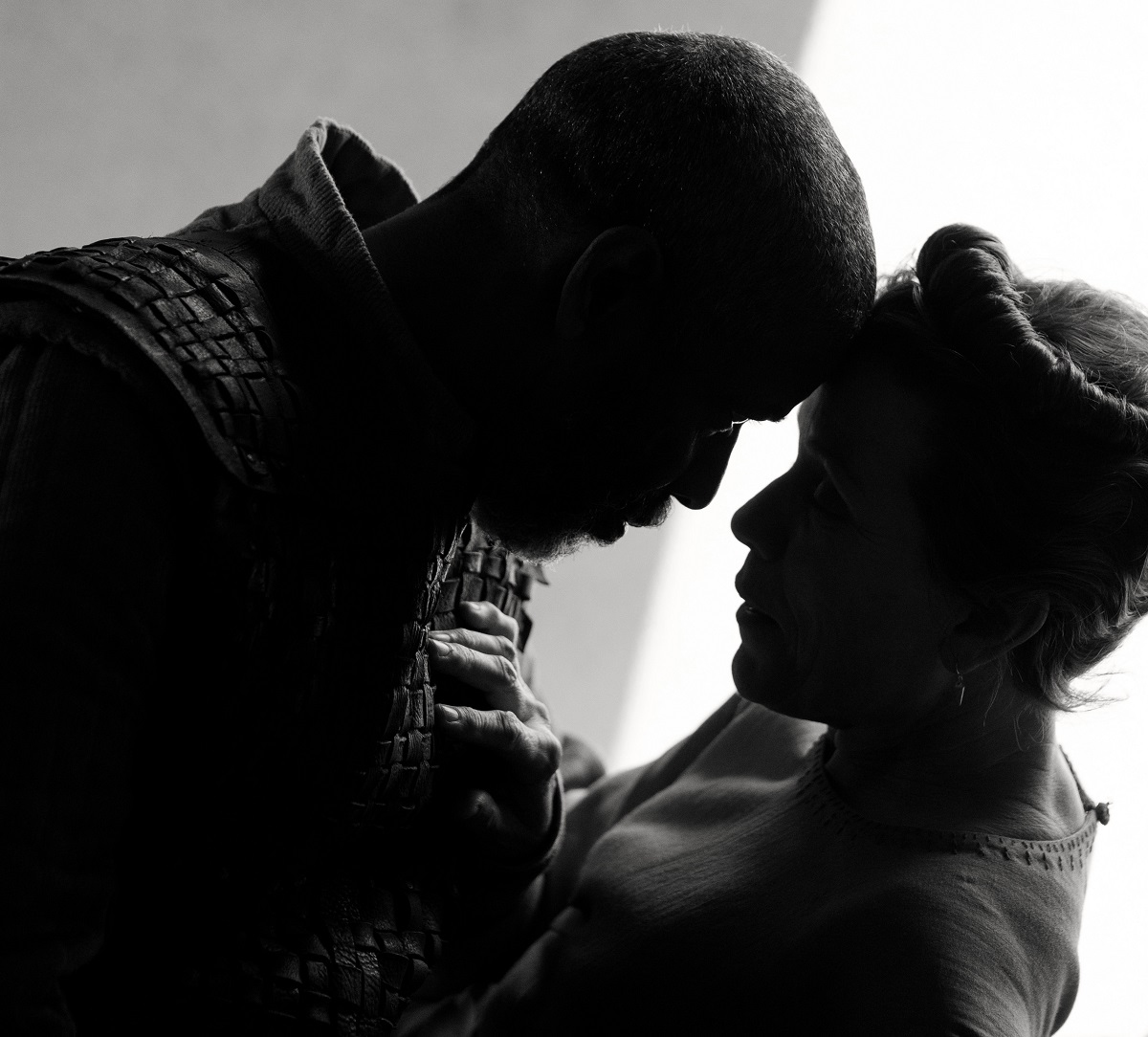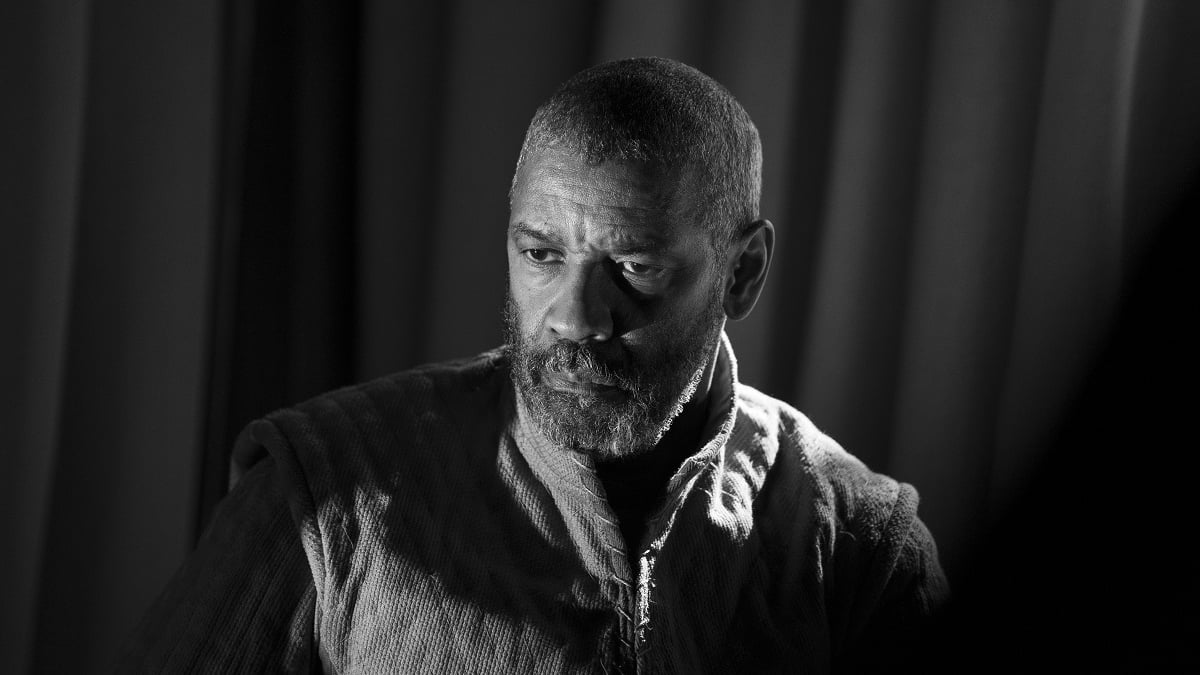With The Tragedy of Macbeth due for release Friday on Apple TV Plus, this slick streaming service has come of age. There is an unspoken reverence that slips into conversations when people mention Shakespeare, which suffers no fools and leaves no room for rebuttal. With this latest adaptation of the masterwork, the Apple TV Plus team has shifted from pumping out award-winning content like Ted Lasso to aligning with Hollywood royalty. That’s a move that could see them dominate Oscar night as Denzel Washington, Frances McDormand and some supremely talented supporting players make waves in this take on the classic tragedy.
For the unfamiliar, Macbeth tells a tale of treachery reeking of revenge most foul. Laced with madness and soaked through with the supernatural, it is a monumental play concerned with the intemperate disposition of those in power. Washington breathes life into the title role, as one half of a powerful pairing capturing the eye throughout. McDormand completes him as Lady Macbeth, both encouraging and admonishing a husband of indeterminate agendas.
Ambition, entitlement, and pernicious politics also play a part as murderous plotting blossoms into bloody assassination. Adapted for the screen by director Joel Coen, this version puts subterfuge front and center, while language does the heavy lifting elsewhere. All the other players, however small their parts, bring their A-game, perhaps realizing the quality of those around them. Meanwhile, barbaric butchery, infanticide, and insanity are all addressed within the fabric of this bloody fable.
Monochromatic monoliths and desolate moorland define this updated Macbeth, whilst architectural austerity and razor-sharp lighting allow audiences no time for digression. Beyond the Orson Welles influences, obvious in Stefan Dechant’s impeccable production design, there is something to said for Bruno Delbonnel’s cinematography. Voyeuristic, intrusive, and yet delicately framed, there is nothing about this film which feels other than polished.
Merging stage and screen perfectly, Macbeth glories in the superficial nature of its theatrical endeavor. Scenes fade to black; soundstages are apparent and yet artifice on this occasion is everything. The lyrical language of a long-lost age lingers just long enough for audiences to listen. The cadence and intonation hold the key to those verbal flourishes, never letting up long enough for viewers to switch off.
Whether audiences believe Shakespeare was a singular genius or ascribe to the theory of multiple authors creating the works credited to him, there is no denying the talent in the writing. Macbeth remains a powerful play featuring dialogue that feels audacious even by contemporary standards. Themes of corruption combined with human weakness tap into the universal truths associated with people borne of privilege. In pursuing an understanding of that Shakespearean mainstay, Washington is no different.
His time on Broadway is comprehensibly documented and so he brings the experience from both mediums to bear. His awareness of character and understanding of craft brings a world-weary quality to Macbeth, that adds frailty not strength. Either driven by imagined sleights or goaded by marital pressures, there is a complexity he brings that elevates everything. Similarly, Frances McDormand proves once again why she remains such a formidable force on screen.
Charged with matching the dominance of Washington in full force, she stands toe to toe with him offering tenderness and consolation alongside diminishment in equal measure. Their relationship is a power play that exists within and without, both supportive and detrimental by turns. However, for some people this two-hour example of Shakespearean wordplay may be too much effort, leaving no room for those with less than real love for the work. As the words weave their lyrical magic and characters conjure soliloquies from thin air, it becomes apparent why Coen is making this film.
Macbeth has nothing to do with making money, but rather everything to do with creating art. In this case, that translates to something of substance, there to teach, enlighten and enrapture when possible. It harks back to a time when language was the visual effect, rather than merely providing the bridge between set pieces. Shakespeare endures for precisely that reason, because Macbeth was created in a time where story and character were king. Time was of the essence; crowds were unforgiving and so playwrights used every weapon in their arsenal to make something memorable.
That is what The Tragedy of Macbeth illustrates, celebrates, and underlines in thick black marker pen. This is acting at its purest, designed to communicate and enlighten an audience in search of answers. Either through visual and verbal dexterity, or blood-curdling physicality and audible androgyny, this play still has much to teach people about the power of cinema.
Top Honors
This masterful adaptation from Joel Coen showcases flawlessly performances, spearheaded by Denzel Washington on blistering form.
The Tragedy of Macbeth



